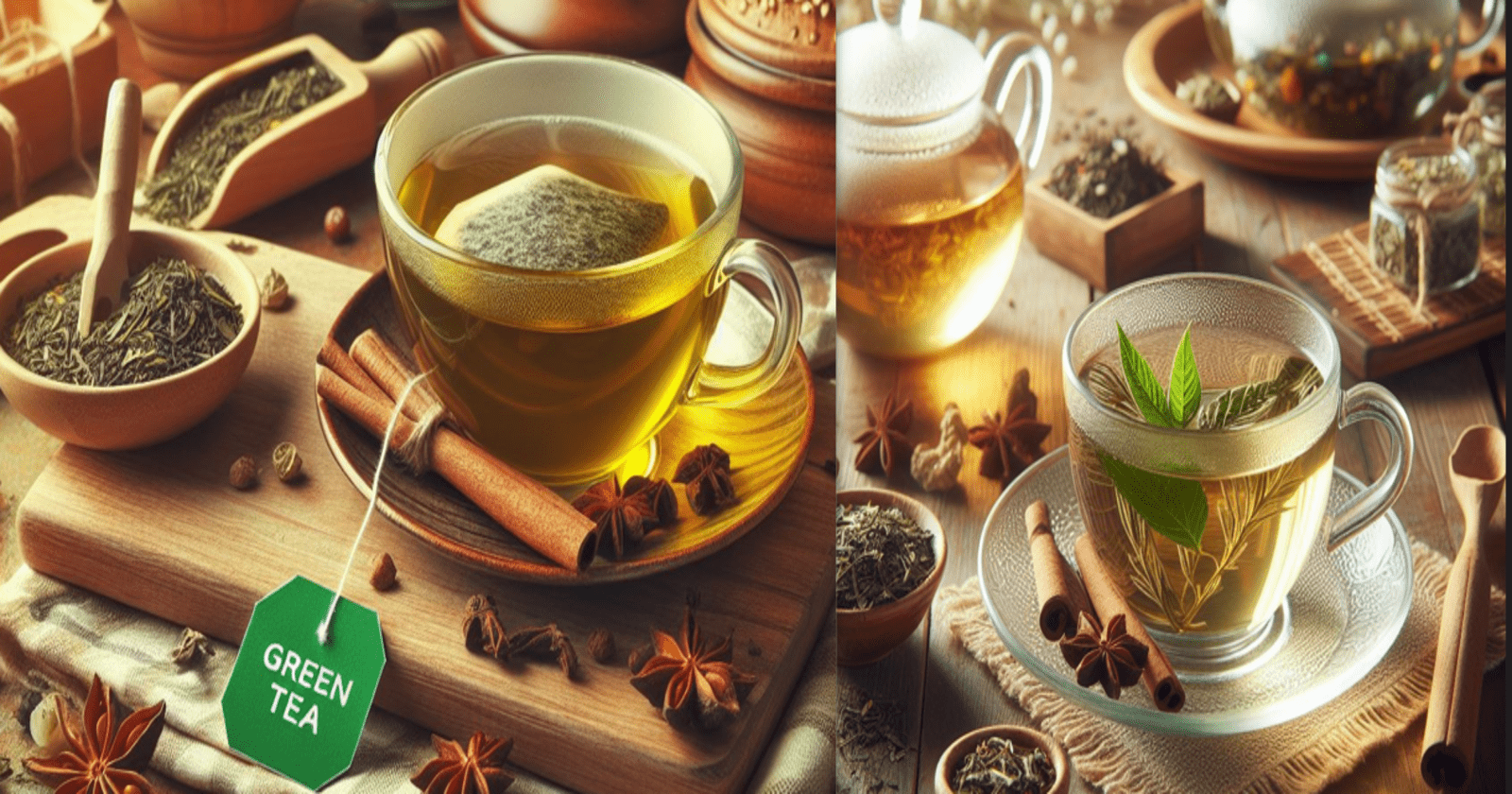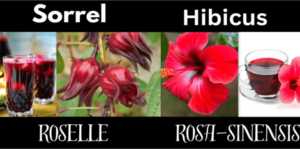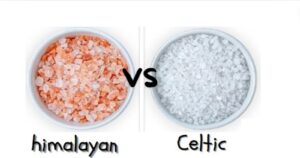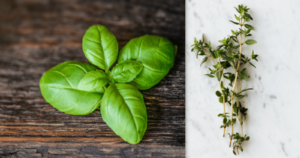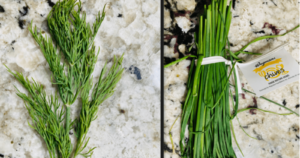Green tea made from the leaves of the Camellia sinensis plant that have undergone minimal oxidation during processing, leaves are quickly heated or steamed after being harvested to prevent oxidation, which preserves their vibrant green color and fresh flavor.
Herbal tea is a beverage made by infusing various herbs, spices, fruits, flowers, or other plant materials in hot water and does not contain leaves from the Camellia sinensis plant and are often caffeine-free.
| Green Tea | Herbal Tea |
|---|---|
| Derived from Camellia sinensis plant | Made from various herbs, fruits, flowers, etc. |
| Minimal oxidation during processing | No oxidation involved |
| Contains caffeine | Often caffeine-free |
| Earthy, grassy, sometimes slightly bitter | Varied flavors depending on ingredients |
| Typically light green to yellow | Varies widely depending on ingredients |
| Leaves are steamed or pan-fired | Ingredients are dried, chopped, or steeped |
| Rich in antioxidants | Have various medicinal properties depending on ingredients |
| May boost metabolism, brain function, etc. | Have many health benefits |
While green tea is made specifically from the leaves of the Camellia sinensis plant and undergoes minimal processing, herbal tea can be made from a variety of plants and does not necessarily contain tea leaves.

Essential Ingredients of Green Tea
1.Tea Leaves (Camellia sinensis): Green tea is made from the leaves of the Camellia sinensis plant. The quality and flavor of the tea depend on the variety of the tea plant and how the leaves are processed.
2. Caffeine: Green tea naturally contains caffeine, though generally less than black tea or coffee. Caffeine content can vary depending on factors like the type of green tea and brewing method.
3. Catechins: These are a type of antioxidant found in green tea, particularly epigallocatechin gallate (EGCG), which is known for its potential health benefits, including reducing inflammation and helping to fight certain diseases.

4. Polyphenols: Green tea is rich in polyphenols, which are micronutrients with antioxidant properties. These compounds may help to protect cells from damage caused by free radicals and contribute to various health benefits.
5. Amino Acids: Green tea contains certain amino acids such as L-theanine, which is believed to have a calming effect and may counteract the stimulating effects of caffeine.
6. Vitamins and Minerals: Green tea contains small amounts of vitamins and minerals, including vitamin C, vitamin B2 (riboflavin), folic acid, and minerals such as potassium, calcium, and manganese.
7. Flavonoids: These are a group of plant chemicals found in green tea that have antioxidant and anti-inflammatory properties, contributing to the overall health benefits of the beverage.
* It’s important to note that the specific composition of green tea can vary depending on factors such as the variety of tea plant, growing conditions, harvesting methods, and processing techniques.
Types of Green Tea, Color, aroma and Flavor
| Green Tea | Characteristics |
|---|---|
| Sencha | Light green color, Smell is Fresh, grassy, Traditional Japanese green tea taste slightly sweet, with a hint of umami |
| Dragon Well (Longjing) | Pale yellow-green color , Nutty, chestnut aroma, with a smooth, mellow flavor Taste, Nutty, sweet, with a lingering chestnut aftertaste |
| Gunpowder | Dark green color. Smoky, earthy aroma. Bold taste, smoky, slightly bitter, robust. |
| Matcha | Powdered Japanese green tea, used in ceremonies. Vibrant green. Vegetal, grassy aroma. Rich, creamy taste with slight sweetness. |
| Gyokuro | Bright green color, Sweet, seaweed aroma , Shade-grown Japanese green tea, taste Sweet, umami-rich, with a hint of seaweed |
| Jasmine Green Tea | Light yellow-green. Floral, fragrant smell. Scented with Jasmine, delicate taste with lingering sweetness. |
| Hojicha | Amber color, Smell toasty, nutty. Japanese green tea roasted over charcoal. Taste toasty, nutty, with a caramelized sweetness |

Herbal tea Ingredients
Herbal tea can have a wide range of ingredients, such as roots, leaves flowers herbs and spices each offering unique flavors and potential health benefits.
| Roots | Leaves and Flowers |
|---|---|
| 1. Ginger | 1. Chamomile |
| 2. Licorice root | 2. Peppermint |
| 3. Echinacea | 3. Lemon Balm |
| 4. Dandelion root | 4. Lavender |
| 5. Turmeric | 5. Hibiscus |
| 6. Burdock root | 6. Rosehip |
| 7. Marshmallow Root Tea | 7. Nettle |
| 8. Chicory Root Tea | 8. Lemongrass |
| 9. Sarsaparilla Root Tea | 9. Elderflower |
| 10. Bupleurum Root Tea | 10. Passionflower |
| 11. Valerian Root Tea | 11. Jasmine |
| 12. Ashwagandha Root Tea | 12. Yarrow |
12 Herbal teas from Plant Roots, taste and flavor
1.Ginger Tea: Made from the root of the ginger plant, it has a spicy and warming flavor.

2. Turmeric Tea: Prepared from the root of the turmeric plant, known for its vibrant color and earthy taste.


3. Licorice Root Tea: Made from the root of the licorice plant, it has a naturally sweet flavor.
4. Dandelion Root Tea: Brewed from the root of the dandelion plant, it has a slightly bitter taste and is often used for its potential health benefits.


5. Burdock Root Tea: Derived from the root of the burdock plant, it has a mild, slightly sweet flavor.

6. Echinacea Root Tea: Made from the root of the echinacea plant, it has a distinct earthy taste and is often used to support immune health.

7. Marshmallow Root Tea: Brewed from the root of the marshmallow plant, it has a mild, soothing taste and is known for its mucilaginous properties.


8. Chicory Root Tea: Prepared from the root of the chicory plant, it has a slightly bitter, coffee-like flavor and is often used as a caffeine-free alternative.
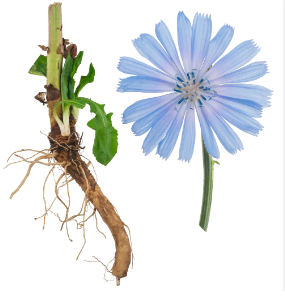

9. Sarsaparilla Root Tea: Derived from the root of the sarsaparilla plant, it has a rich, slightly sweet flavor.


10. Bupleurum Root Tea: Made from the root of the bupleurum plant, it has a mildly bitter taste and is often used in traditional Chinese herbal medicine.

11. Valerian Root Tea: Brewed from the root of the valerian plant, it has an earthy taste and is commonly used to promote relaxation and sleep.

12. Ashwagandha Root Tea: Prepared from the root of the ashwagandha plant, it has a slightly bitter and nutty flavor, often used for its adaptogenic properties.
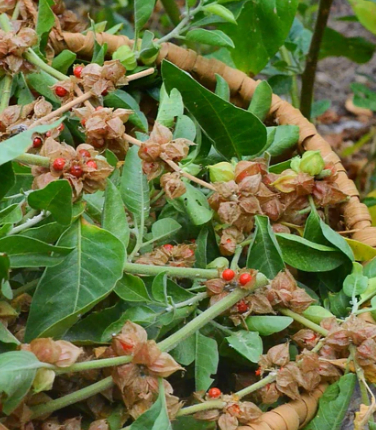

10 Herbal teas that derive their unique flavors from the flowers of different plants.
Not all herbal tea is made from the plant leaves or root
| Flower | Description |
|---|---|
| 1. Chamomile | Made from the dried flowers of the chamomile plant, known for its calming properties. |
| 2. Lavender | Brewed from the dried flowers of the lavender plant, often used for relaxation and stress relief. |
| 3. Hibiscus | Created from the dried petals of the hibiscus flower, known for its tart flavor and vibrant color. |
| 4. Rose | Made from the petals of roses, offering a delicate floral flavor and aroma. |
| 5. Elderflower | Brewed from the flowers of the elderberry plant, often used for immune support and respiratory health. |
| 6. Jasmine | Produced by infusing green tea leaves with jasmine flowers, resulting in a fragrant and subtly sweet brew. |
| 7. Peppermint | While not made from flowers, peppermint tea can sometimes include peppermint flowers for added flavor. |
| 8. Calendula | Crafted from the petals of the calendula flower, known for its anti-inflammatory and soothing properties. |
| 9.Chrysanthemum | Made from the dried flowers of chrysanthemum plants, offering a slightly sweet and floral flavor. |
| 10. Dandelion | Brewed from the flowers of dandelion plants, used for its potential health benefits, including liver support. |
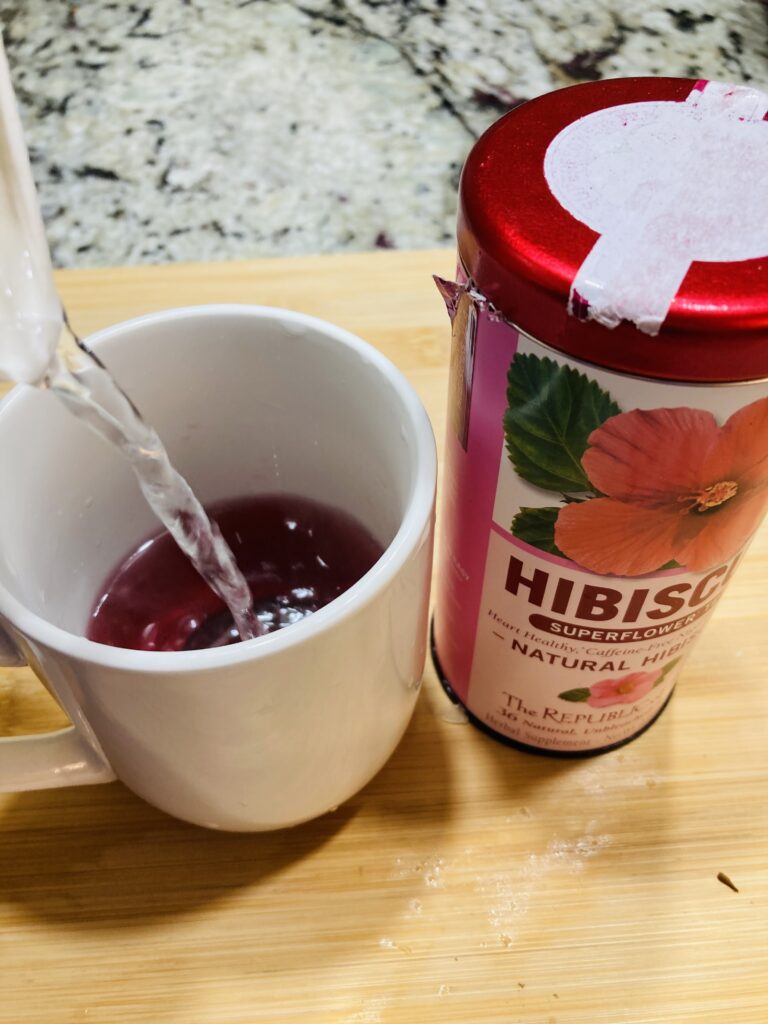
Herbal teas made from the leaves of various plants
| Leaf | Description |
|---|---|
| Peppermint | Brewed from the leaves of the peppermint plant, known for its refreshing and minty flavor. |
| Spearmint | Similar to peppermint tea but with a milder flavor, made from the leaves of the spearmint plant. |
| Lemon Balm | Crafted from the leaves of the lemon balm plant, offering a citrusy and slightly sweet flavor. |
| Basil | Made from the leaves of the basil plant, offering a fragrant and slightly spicy flavor. |
| Nettle | Brewed from the leaves of the stinging nettle plant, known for its earthy flavor and potential health benefits. |
| Lemongrass | Created from the leaves of the lemongrass plant, offering a citrusy and refreshing taste. |
| Rooibos | Made from the leaves of the rooibos plant, native to South Africa, offering a mild and slightly sweet flavor. |
| Eucalyptus | Brewed from the leaves of the eucalyptus tree, known for its refreshing and menthol-like flavor. |
| Sage | Made from the leaves of the sage plant, offering a savory and slightly bitter flavor. |
| Stevia Leaf | Crafted from the leaves of the stevia plant, known for its intensely sweet flavor without the calories of sugar. |
Nutritional content of Green Tea
Green tea is renowned for its health benefits, and its nutritional content reflects this. Here’s a general overview of the nutritional content of green tea per 8 fl oz (240 ml) serving:
| Nutritional Component | Content per 8 fl oz (240 ml) Serving |
|---|---|
| Calories | Typically 0 calories |
| Caffeine | Approximately 20-45 mg of caffeine |
| Antioxidants | Rich in catechins, particularly EGCG |
| Polyphenols | Abundant, linked to reduced inflammation and cancer risk |
| Epigallocatechin Gallate (EGCG) | Most abundant catechin, associated with various health benefits |
| Amino Acids | Contains L-theanine, known for its calming effect |
| Minerals | Small amounts of potassium, magnesium, and calcium |
Nutritional content of Herbal tea
A table outlining the approximate nutritional content of herbal tea based on an 8 oz (240 ml) serving size:
| Nutrient | Amount per 8 oz (240 ml) serving |
|---|---|
| Calories | Typically 0-5 calories, depending on ingredients |
| Fat | 0 grams |
| Protein | 0 grams |
| Carbohydrates | Typically less than 1 gram |
| Fiber | Varies depending on ingredients (usually negligible) |
| Vitamins & Minerals | Varies depending on herbs used |
| Antioxidants | Varies depending on herbs used |
| Caffeine | None (unless the herbal tea contains ingredients like yerba mate or guayusa) |

Health Benefits of Green Tea
Based on the latest research, the health benefits of green tea largely stem from its polyphenol content, compounds known for their strong antioxidant properties. These polyphenols surpass the antioxidant capabilities of vitamin C. Additionally, the slightly bitter taste of green tea is attributed to these polyphenols.
1. Rich in Antioxidants: Green tea is loaded with antioxidants, such as catechins and flavonoids, which help in combating oxidative stress and reducing cell damage.
2. Heart Health: Regular consumption of green tea has been linked to a reduced risk of cardiovascular diseases. It helps in lowering bad cholesterol (LDL) levels and improving the ratio of good cholesterol (HDL) to total cholesterol.
3. Weight Management: Green tea contains compounds that may aid in boosting metabolism and promoting fat oxidation. It can assist in weight management when combined with a healthy diet and exercise.
4. Brain Health: The caffeine and amino acid L-theanine in green tea can have synergistic effects, improving brain function, enhancing mood, and promoting alertness and concentration.
5. Cancer Prevention: Some studies suggest that the antioxidants in green tea may help in reducing the risk of certain types of cancer, such as breast, prostate, and colorectal cancer. However, more research is needed in this area.
6. Type 2 Diabetes Management: Green tea may improve insulin sensitivity and regulate blood sugar levels, potentially reducing the risk of developing type 2 diabetes.
7. Oral Health: The catechins in green tea have antibacterial properties that can help in inhibiting the growth of bacteria in the mouth, reducing the risk of cavities and improving overall oral health.
8. Skin Health: Green tea’s antioxidant and anti-inflammatory properties may help in protecting the skin from damage caused by UV radiation, reducing the risk of skin aging, and promoting overall skin health.
9. Digestive Health: Green tea has been traditionally used to aid digestion and promote gut health. It may help in reducing inflammation in the gut and improving digestion.
10. Bone Health: Some studies suggest that the catechins in green tea may help in improving bone mineral density and reducing the risk of osteoporosis, although more research is needed to confirm these effects.

Health Benefits of Herbal tea
Herbal teas offer a plethora of health benefits, depending on the herbs used. Here are some common ones and their associated health perks:
1. Chamomile: Known for its calming effects, chamomile tea can help with insomnia, reduce stress, soothe upset stomachs, and even boost the immune system due to its anti-inflammatory properties.

2. Peppermint: Peppermint tea is excellent for digestion. It can relieve bloating, indigestion, and nausea. It also has antimicrobial properties, which can help fight off bacterial infections.
3. Ginger: Ginger tea is famous for its ability to alleviate nausea and aid digestion. It also has anti-inflammatory properties, which may help reduce muscle pain and soreness.
4. Lemon Balm: Lemon balm tea is known for its calming effects, which can help reduce anxiety and promote relaxation. It’s also believed to have antiviral properties and may aid in digestion.
5. Green Tea: Though not strictly an herbal tea, green tea is packed with antioxidants called catechins, which have been linked to various health benefits, including improved heart health, reduced risk of cancer, and weight loss.

6. Hibiscus: Hibiscus tea is rich in antioxidants and may help lower blood pressure and cholesterol levels. It also has diuretic properties, which can aid in weight management and promote kidney health.
7. Echinacea: Echinacea tea is often used to boost the immune system and reduce the severity of cold and flu symptoms. It may also have anti-inflammatory properties that help alleviate pain and swelling.
8. Lavender: Lavender tea is known for its calming and relaxing effects. It can help reduce anxiety, improve sleep quality, and alleviate headaches.
9. Nettle: Nettle tea is rich in vitamins and minerals, including iron and calcium. It may help reduce inflammation, alleviate allergy symptoms, and promote urinary tract health.
10. Rooibos: Rooibos tea is caffeine-free and rich in antioxidants. It may help improve heart health, promote digestion, and support healthy skin.
When incorporating herbal teas into your routine, it’s essential to be mindful of potential interactions with medications and any existing health conditions.
Advantages of Green tea vs Herbal tea
Advantages of Green Tea:
- Antioxidant Content: Green tea is rich in antioxidants, particularly catechins like EGCG (epigallocatechin gallate), which help fight oxidative stress and reduce the risk of chronic diseases.
- Boosts Metabolism: Green tea contains compounds that may help increase metabolism and promote fat oxidation, potentially aiding in weight loss or weight management efforts.
- Enhances Brain Function: The combination of caffeine and L-theanine in green tea can improve brain function, including mood, memory, and alertness, without the jittery effects associated with excessive caffeine intake.
- Supports Heart Health: Regular consumption of green tea may lower LDL cholesterol levels, reduce the risk of heart disease, and improve overall cardiovascular health.
- May Reduce Cancer Risk: Some studies suggest that the antioxidants in green tea may help inhibit the growth of cancer cells, potentially lowering the risk of various types of cancer, although more research is needed in this area.
- Promotes Oral Health: The catechins in green tea have antibacterial properties that can help inhibit the growth of harmful bacteria in the mouth, reducing the risk of cavities, gum disease, and bad breath.
- May Lower Blood Sugar Levels: Green tea may help regulate blood sugar levels and improve insulin sensitivity, which could be beneficial for preventing and managing type 2 diabetes.


Advantages of Herbal Tea:
- Caffeine-Free: Herbal teas are naturally caffeine-free, making them a suitable choice for individuals who are sensitive to caffeine or want to avoid it, especially in the evening.
- Wide Variety of Flavors: Herbal teas come in a diverse range of flavors and blends, often derived from fruits, flowers, herbs, and spices, providing options to suit different tastes and preferences.
- Calming and Relaxing: Many herbal teas have soothing properties that can help promote relaxation, reduce stress, and improve sleep quality, making them an excellent choice for winding down after a long day.
- Supports Digestive Health: Certain herbal teas, such as peppermint tea, ginger tea, or chamomile tea, have been traditionally used to aid digestion, relieve stomach discomfort, alleviate nausea, and soothe digestive issues.
- Rich in Nutrients: Depending on the herbs used, herbal teas may contain various vitamins, minerals, and antioxidants, offering potential health benefits beyond hydration.
- Hydration: Like green tea, herbal teas are a hydrating beverage choice, contributing to overall fluid intake and helping maintain proper hydration levels throughout the day.
- Customizable for Health Goals: Herbal teas can be tailored to address specific health concerns or goals by selecting herbs known for their particular properties, such as immune support, relaxation, or detoxification.
Disadvantages of Green Tea vs Herbal Tea
Both green tea and herbal tea offer various health benefits, but they also have their own set of disadvantages:

Disadvantages of Green Tea:
- Caffeine Content: Green tea contains caffeine, which can cause issues for individuals who are sensitive to caffeine or who need to limit their intake due to health reasons.
- Staining: Green tea can potentially stain teeth if consumed excessively over time.
- Potential for Oxalate: Green tea contains oxalates, which can contribute to kidney stone formation in some individuals if consumed in large amounts.
- Tannins: Green tea contains tannins, which can interfere with the absorption of iron and other minerals, particularly when consumed with meals.
- Allergic Reactions: Some individuals may be allergic to certain compounds found in green tea, leading to allergic reactions such as skin rashes or digestive issues.

Disadvantages of Herbal Tea:
- Lack of Standardization: Unlike green tea, herbal teas are not standardized, meaning the composition and potency of herbal teas can vary significantly between brands and batches.
- Limited Research: While some herbal teas have been studied for their health benefits, many have not undergone extensive scientific research to support their efficacy or safety.
- Potential Contaminants: Herbal teas may contain contaminants such as pesticides, heavy metals, or microbes if not sourced from reputable suppliers or if not prepared properly.
- Interaction with Medications: Some herbal teas may interact with medications, either by enhancing or inhibiting their effects, which can be problematic for individuals on specific drug regimens.
- Pregnancy Concerns: Certain herbal teas, such as those containing licorice root or chamomile, may not be safe for pregnant women or individuals with certain health conditions.
Who should not Drink Green Tea
1. People sensitive to caffeine: Green tea contains caffeine, although less than coffee, it can still cause jitteriness, anxiety, or sleep disturbances in sensitive individuals.
2. People with iron deficiency: Some studies suggest that green tea may inhibit the absorption of non-heme iron (the type of iron found in plant foods), so individuals with iron deficiency should consume green tea between meals and not with meals to minimize this effect.
3. People with certain medical conditions: Individuals with certain medical conditions such as anxiety disorders, heart problems, kidney disorders, and stomach ulcers should consult their healthcare provider before consuming green tea, as it may interact with medications or exacerbate their condition.
4. Pregnant or breastfeeding women: While moderate consumption of green tea is generally considered safe during pregnancy, excessive intake may be harmful due to its caffeine content. It’s best for pregnant or breastfeeding women to limit their intake and consult with their healthcare provider.
5. Children: Due to its caffeine content and the potential for adverse effects, children should limit their intake of green tea.
6. People with certain allergies or sensitivities: Individuals who are allergic to tea or sensitive to the components of green tea should avoid it.
Who should not drink Herbal Tea
Herbal teas are often considered safe for most people, but there are still some individuals who should be cautious or avoid them:
1. People with specific allergies: Some individuals may be allergic to certain herbs used in herbal teas. It’s essential to be aware of any allergies you may have and check the ingredients of herbal teas to avoid any potential allergic reactions.
2. Pregnant or breastfeeding women: While many herbal teas are safe during pregnancy and breastfeeding, some herbs may have adverse effects. Pregnant or breastfeeding women should consult with their healthcare provider before consuming herbal teas to ensure safety.
3. People taking certain medications: Herbal teas can interact with certain medications, either by reducing their effectiveness or intensifying their effects. It’s crucial for individuals taking medications to consult with their healthcare provider before consuming herbal teas to avoid any potential interactions.
4. People with specific medical conditions: Individuals with certain medical conditions, such as kidney problems, liver disease, or hormone-sensitive conditions, should be cautious about consuming certain herbal teas. Some herbs may affect these conditions or interact with medications used to treat them.
5. Infants and young children: Herbal teas may not be suitable for infants and young children, as their bodies may not tolerate certain herbs well, and there may be a risk of choking if the tea is not prepared and served appropriately.
6. People with sensitivity to certain herbs: Some individuals may experience gastrointestinal discomfort, allergic reactions, or other adverse effects from specific herbs used in herbal teas. It’s essential to listen to your body and avoid any herbs that you are sensitive to.
7. People who take warfarin (Coudamin) should not drink green tea. Since green tea contains vitamin K, it can make this medication ineffective.
Medications Green tea make more Effective and increase side effects
- Ciprofloxacin (Cipro)
- Enoxacin (Penetrex)
- Grepafloxacin (Raxar)
- Norfloxacin (Chibroxin, Noroxin)
- Sparfloxacin (Zagam)
- Trovafloxacin (Trovan)
Medications Green tea may interacts with
1. Adenosine-a medication used in hospitals for irregular heart rhythms.
2. Chemotherapy-Green tea enhanced doxorubicin and tamoxifen in lab tests but not in human studies. Tea extracts may affect a gene in prostate cancer cells, reducing chemotherapy sensitivity. Consult doctors before consuming tea during chemotherapy.
3. Beta-blockers, Propranolol, and Metoprolol-caffeine from green tea, may increase blood pressure in people taking propranolol (Inderal) and metoprolol (Lopressor, Toprol XL). These medications are used to treat high blood pressure and heart disease
4. Beta-lactam–( Penicillins, cephalosporins, monobactams, and carbapenems) Green tea has been shown to potentially enhance the efficacy of beta-lactam antibiotics by reducing bacterial resistance to treatment.
5. Benzodiazepines-Caffeine, including that found in green tea, could diminish the calming effects of medications commonly prescribed for anxiety, like diazepam (Valium) and lorazepam (Ativan).
6. Blood-Thinning Medications– Avoid drinking green tea if you’re on warfarin (Coumadin) as it contains vitamin K, which can counteract the medication. Green tea compounds may also enhance the blood-thinning effect of such medications. Additionally, combining green tea with aspirin can further increase the risk of bleeding. It’s crucial to consult your doctor regarding green tea intake if you’re on blood-thinning medications.
7. Clozapine (Clozaril)-Taking clozapine within 40 minutes of consuming green tea might diminish its effects.
8. Ephedrine- Consuming green tea alongside ephedrine may lead to agitation, tremors, insomnia, and weight loss.
9. Birth control pills– Oral contraceptives can prolong the amount of time caffeine stays in the body, which may increase its stimulating effects.
10. Lithium. Research indicates that green tea can lower blood levels of lithium, a medication prescribed for bipolar disorder, potentially reducing its effectiveness.
11. Monoamine Oxidase Inhibitors (MAOIs). When combined with certain antidepressant medications, green tea may induce a significant rise in blood pressure known as a “hypertensive crisis.” Examples of MAOIs include:
- Isocarboxazid (Marplan)
- Moclobemide (Manerix)
- Phenelzine (Nardil)
- Tranylcypromine (Parnate)
12. Phenylpropanolamine-caffeine in green tea with this drug can cause activation of the central and sympathetic nervous systems. Severe, life-threatening, and occasionally fatal hypertensive reactions have been reported after their combined use
Resources
https://pubmed.ncbi.nlm.nih.gov/2357862/#:~:text=
https://www.mountsinai.org/health-library/herb/green-tea#:~:text=
